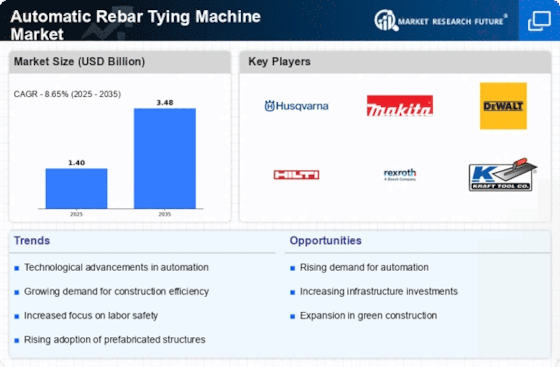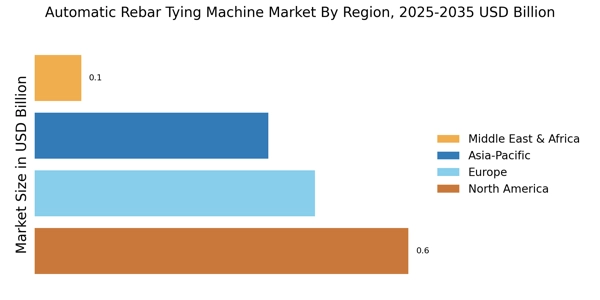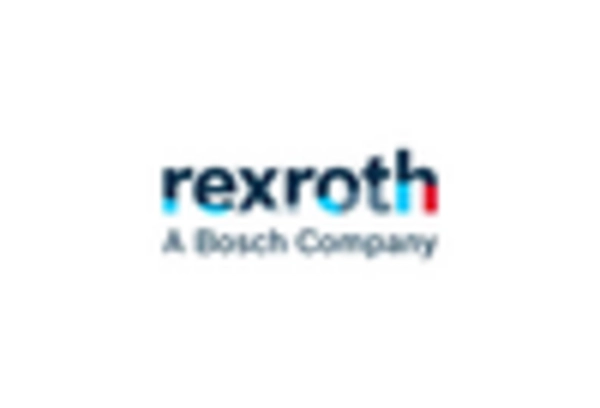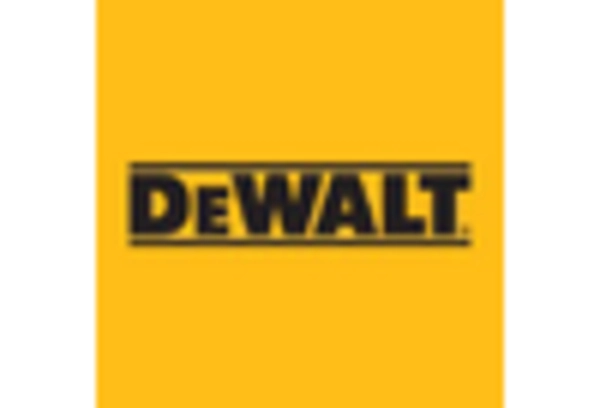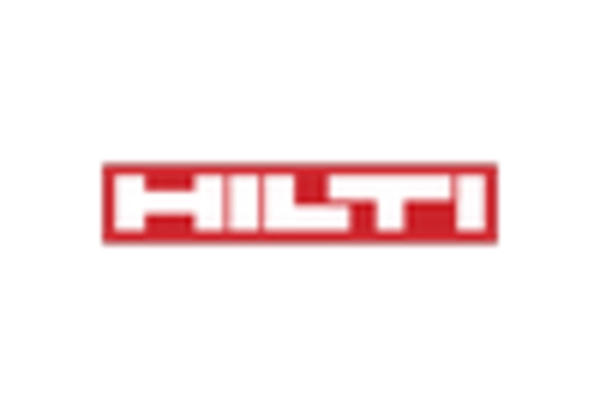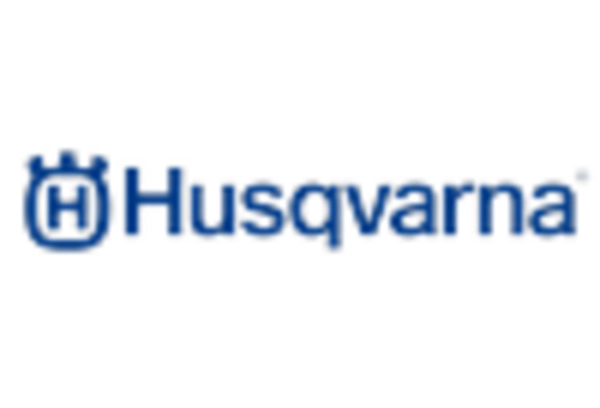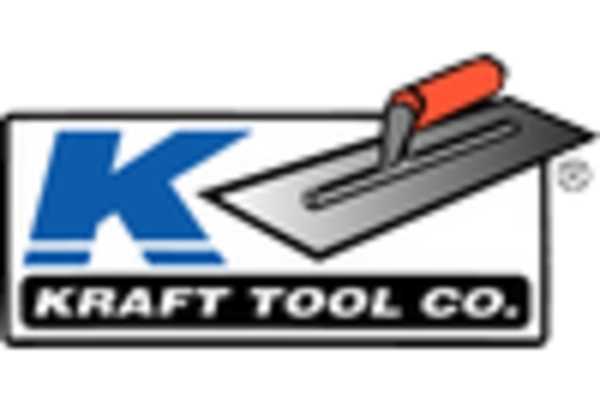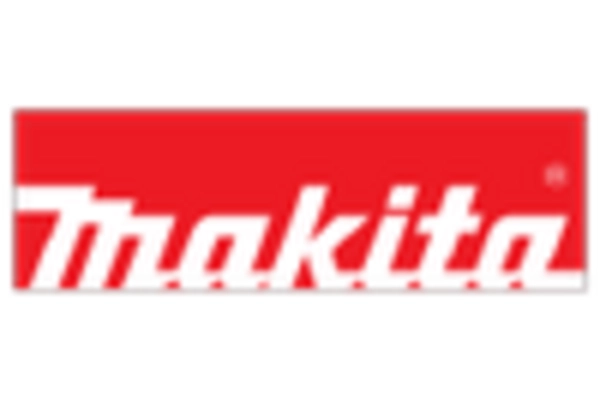Focus on Safety and Compliance
The Automatic Rebar Tying Machine Market is also driven by a heightened focus on safety and compliance within the construction sector. As regulations become more stringent, companies are increasingly adopting machinery that not only improves efficiency but also enhances worker safety. Automatic rebar tying machines reduce the risk of injuries associated with manual tying, such as repetitive strain injuries and accidents. This emphasis on safety is likely to influence purchasing decisions, as companies seek to comply with regulations while ensuring a safe working environment. Consequently, the demand for automatic machines that prioritize safety features may see a notable increase in the coming years.
Labor Shortages in Construction
The Automatic Rebar Tying Machine Market is significantly influenced by the ongoing labor shortages in the construction sector. As skilled labor becomes increasingly scarce, construction companies are compelled to seek solutions that enhance productivity without relying heavily on human resources. Automatic rebar tying machines offer a viable alternative, allowing for faster and more efficient tying processes. This shift towards automation is likely to continue as companies strive to complete projects on time and within budget. The market for these machines may expand as businesses recognize the potential for increased efficiency and reduced labor costs, thereby addressing the challenges posed by workforce limitations.
Increased Infrastructure Development
The Automatic Rebar Tying Machine Market is poised for growth due to the ongoing increase in infrastructure development across various regions. Governments are investing heavily in infrastructure projects, including roads, bridges, and buildings, to stimulate economic growth. According to recent data, the construction sector is projected to expand significantly, with a compound annual growth rate of approximately 5% over the next few years. This expansion necessitates the use of efficient construction equipment, including automatic rebar tying machines, to meet project timelines and quality standards. As a result, the demand for these machines is expected to rise, providing opportunities for manufacturers and suppliers in the market.
Sustainability and Eco-Friendly Practices
The Automatic Rebar Tying Machine Market is witnessing a shift towards sustainability and eco-friendly practices in construction. As environmental concerns grow, construction companies are increasingly adopting practices that minimize waste and reduce their carbon footprint. Automatic rebar tying machines contribute to this trend by optimizing material usage and reducing the need for excessive manual labor, which can lead to higher energy consumption. Furthermore, manufacturers are exploring ways to produce these machines using sustainable materials and processes. This alignment with sustainability goals may enhance the appeal of automatic rebar tying machines, potentially driving market growth as companies seek to meet both regulatory requirements and consumer expectations.
Technological Advancements in Construction
The Automatic Rebar Tying Machine Market is experiencing a surge in technological advancements that enhance efficiency and productivity. Innovations such as automated tying mechanisms and improved battery life are becoming increasingly prevalent. These advancements not only reduce labor costs but also minimize human error, leading to higher quality construction outcomes. The integration of smart technologies, such as IoT connectivity, allows for real-time monitoring and data collection, which can optimize project management. As construction projects become more complex, the demand for sophisticated machinery that can handle intricate tasks is likely to grow. This trend suggests that companies investing in advanced rebar tying machines may gain a competitive edge in the market.


